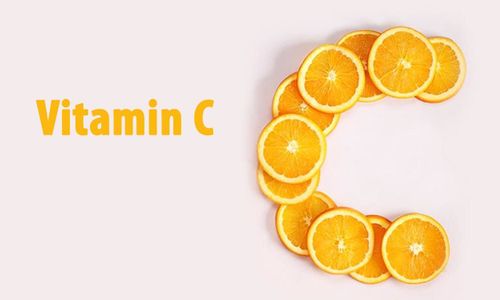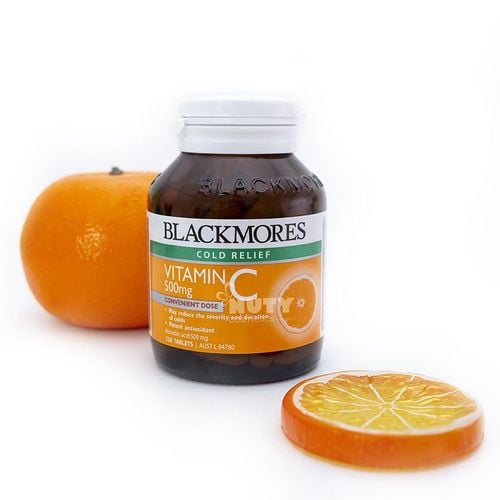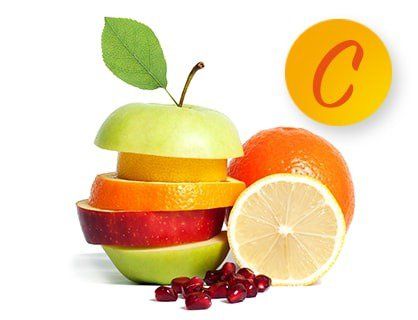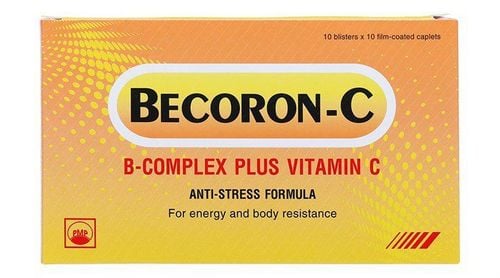This is an automatically translated article.
Of the 13 essential vitamins, vitamin C plays an important role in the health of the mother as well as the growth of the baby. Supplementing vitamin C for pregnant women is especially important because this is a "key" nutrient that helps the mother's body stay healthy and the fetus develops well.
1. The role of vitamin C with pregnant women
Many medical studies have shown that vitamin C plays a very important role for pregnant women. Specifically, if a pregnant woman is deficient in vitamin C during pregnancy, it can cause the fetal brain to not develop fully, even brain damage. Besides, vitamin C deficiency can also cause skin and tooth problems such as:
Easy bleeding gums, breaking small blood vessels under the skin. If prolonged, it can lead to rickets; Causes the skin to dry out; Dry hair, split ends; Slow healing of wounds and bruises. In addition, vitamin C also participates in many biochemical processes of the body, helping pregnant women receive benefits such as:
Fight infections, protect the body from toxins; Tissue repair, wound healing, bone growth; Create Collagen - a protein found in cartilage, bones, tendons and skin, which improves skin elasticity, reduces stretch marks, gives healthy skin and is good for nails and hair of mother and baby; Helps the body absorb iron from foods (mainly plants). Iron helps regulate hemoglobin index to prevent anemia; Prevent the risk of bleeding gums, reduce bleeding under the skin; Prevention of venous insufficiency caused by accumulation of cholesterol and removal of harmful substances; Supports fetal development through the creation of tissues, strengthens placental blood vessels, provides more oxygen to the fetus, reduces the risk of placental abruption.
2. How much vitamin C do pregnant women need?
So how much vitamin C do pregnant women need to supplement each day? It is estimated that the amount of vitamin C provided to pregnant women depends on her age and whether she is pregnant or breastfeeding:For pregnant women over 19 years old: 85mg/day. For pregnant women aged 18 years or younger: 80mg/day; For women aged 19 years and older who are breastfeeding, it is necessary to supplement with 120mg/day, and for women 19 years and younger, it is 115mg/day. Note: Pregnant women should not arbitrarily take a lot of vitamin C, but should follow the doctor's prescription. To avoid excessive absorption of vitamin C harmful to the fetus, women should not absorb more than 1,800mg / day.

Bà bầu cần bao nhiêu vitamin c mỗi ngày cần tham khảo ý kiến bác sĩ chuyên khoa
3. How should pregnant women supplement vitamin C?
With the amount of vitamin C within the recommended safe threshold, pregnant women can completely supplement through the diet. If you intend to use effervescent C or vitamin C supplements, you should give preference to low-dose pills, taken in the morning to avoid insomnia. (Note: pregnant women with high blood pressure should not use C effervescent and oral tablets).
Some natural foods that are rich in vitamin C that pregnant women can incorporate in their daily diet are:
Oranges, lemons: are always considered the richest sources of vitamin C. In 100 grams of oranges contain about 54mg of this vitamin. Estimated in 1 orange has 70mg vitamin C, lemon is 77mg; Papaya: each 100g papaya contains 62mg of vitamin C. Using 1 cup of papaya helps reduce inflammation, improve memory, effective antioxidant; Strawberries: each 100g of strawberries contains about 59mg of vitamin C. Using half a cup of strawberries has provided pregnant women with 89mg of vitamin C; Broccoli: each 100g contains 89mg of vitamin C, which helps reduce inflammation, reduce stress, and increase immune function; Sweet yellow chili: contains an abundant amount of vitamin C, 183mg / 100g of yellow chili. Besides, sweet yellow pepper also helps prevent the risk of cataracts; Parsley: each 100g of parsley contains about 133mg of vitamin C. Combining parsley in meals helps to increase iron absorption for the body; Besides, some other foods containing a lot of vitamin C that pregnant women should add to their diet are fruits and citrus fruits; Vegetables such as tomatoes, beets, and fresh potatoes are also rich sources of vitamin C. However, one note is that the vitamin C content in foods is easily affected by temperature and light, so it needs to be processed and used properly to absorb the maximum amount of nutrients.
Please dial HOTLINE for more information or register for an appointment HERE. Download MyVinmec app to make appointments faster and to manage your bookings easily.













